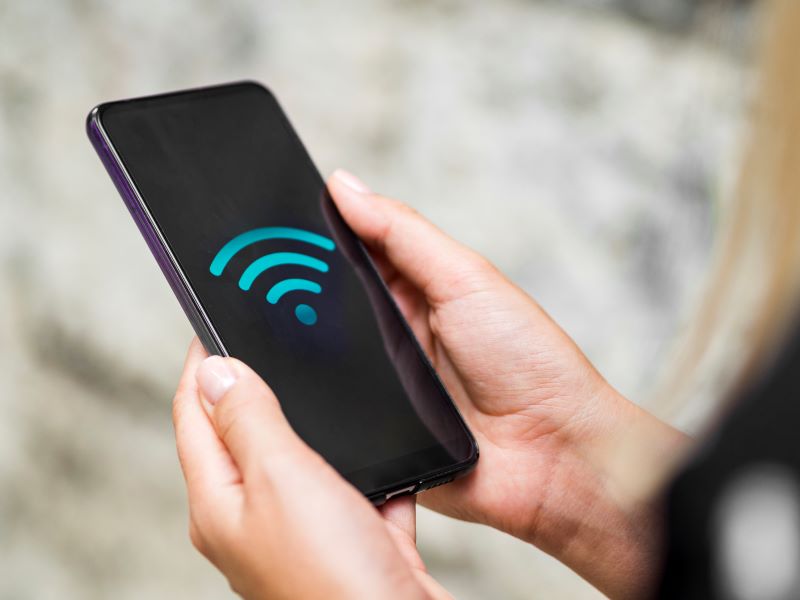The internet has taken the world by storm. All activities get carried out online these days and constantly being on our smartphones and laptops is the need of the hour. Be it working from our phones, ordering commodities, or watching content online, everything is just a click away. Even though our dependency on the internet is immense, it is full of jargon and terminology that can often be quite confusing.
Buy Airtel Wi-Fi with exciting benefits!
However, when it comes to determining the quality of the online experience, understanding these terms can be crucial. ‘kbps’, ‘mbps’, ‘gbps’, and ‘tbps’ – we have all randomly heard several people using these terms casually when talking about their broadband or wifi connection but what exactly do these terms stand for. Let’s delve into these terms and unravel their meanings.
Also Read: Setting Up a Wi-Fi 6 Network: A Step-by-Step Guide
Defining the Terms: KBPS, MBPS, GBPS, TBPS
Firstly, it’s important to understand what these acronyms signify. Each of these terms is a unit of measure for data transfer rates, which essentially tell us how fast our internet connection can transfer data and at what price.
KBPS: This stands for Kilo-bits per second. It’s the most basic unit of measurement for data transfer rates.
MBPS: This stands for Mega-bits per second. It’s a larger unit of measurement, where 1 mbps is equivalent to 1000 kbps.
GBPS: This stands for Giga-bits per second. It’s an even larger unit, where 1 gbps equals 1000 mbps.
TBPS: This stands for Tera-bits per second, the largest unit among these, where 1 tbps equals 1000 gbps.
For example, Airtel Xstream Fiber Broadband services have different plans that have all these units in use as per the price point and utility point. The basic plan provides upto 40 Mbps while the mid-level plan goes up to 300 Mbps. They also have the ultimate plan for people with high-intensity usage of the internet for work, security, or gaming purposes – 1 Gbps. All these plans can be used as per our convenience and budget.
The Difference Between KBPS and MBPS
The primary difference between kbps and mbps is the size of the data that can be transferred per second. When our internet speed is mentioned in mbps, it’s faster than if it’s given in kbps. As stated above, 1 mbps is equivalent to 1000 kbps. So, if our internet service provider (ISP) states our internet speed is 1 mbps, this means we can theoretically transfer 1000 kilo-bits of data per second.
The Difference Between MBPS and GBPS
The difference between mbps and gbps is also one of size, similar to the difference between kbps and mbps. As previously mentioned, 1 gbps equals 1000 mbps. Therefore, if the ISP states your internet speed is 1 gbps, this means we can theoretically transfer 1000 mega-bits of data every second. This is a much faster speed compared to an internet speed of 1 mbps.

The Difference Between GBPS and TBPS
The difference between gbps and tbps is that 1 tbps equals 1000 gbps. Therefore, a 1 tbps connection can transfer a massive amount of data – 1000 giga-bits of data per second. This kind of speed is rarely required for personal use and is generally used for large scale commercial needs.
How These Terms Affect Your Internet Experience
The terms used to denote your internet speed have a significant impact on your online experience. A higher number of kbps, mbps, gbps, or tbps means a faster data transfer rate. This translates into quicker download and upload times, smoother streaming of videos and music, and a better overall experience when browsing the internet or playing online games.
Also Read: Evolution of Wi-Fi Technology From 802.11 to Wi-Fi 6E
Choosing the Right Internet Speed for Your Needs
When choosing an internet plan, it’s important to consider what you need the internet for. If you’re someone who frequently downloads large files, streams high-definition videos, or plays online games, you’d benefit from a higher speed plan that offers more mbps or even gbps. However, for basic browsing and checking emails, a plan with fewer kbps or mbps might suffice.
Common Misconceptions About Internet Speed Terms
One common misconception that often leads to confusion is the difference between ‘mbps’ and ‘MBPS’. While they might look similar, they stand for very different things. ‘mbps’ stands for mega-bits per second while ‘MBPS’ stands for mega-bytes per second. Since 1 byte equals 8 bits, there’s a significant difference between the two, with 1 MBPS being 8 times faster than 1 mbps.
Conclusion: Decoding Internet Speeds for Everyday Use
Internet speed terms like kbps, mbps, gbps, and tbps might seem complex, but understanding them can help you choose the right internet plan for your needs. Higher speeds might seem attractive, but it’s crucial to consider your actual usage to choose the most cost-effective and suitable plan. By understanding these terms, we can ensure we’re getting the best possible internet service for our needs.


 Get App
Get App  Airtel Store
Airtel Store  Login
Login 


